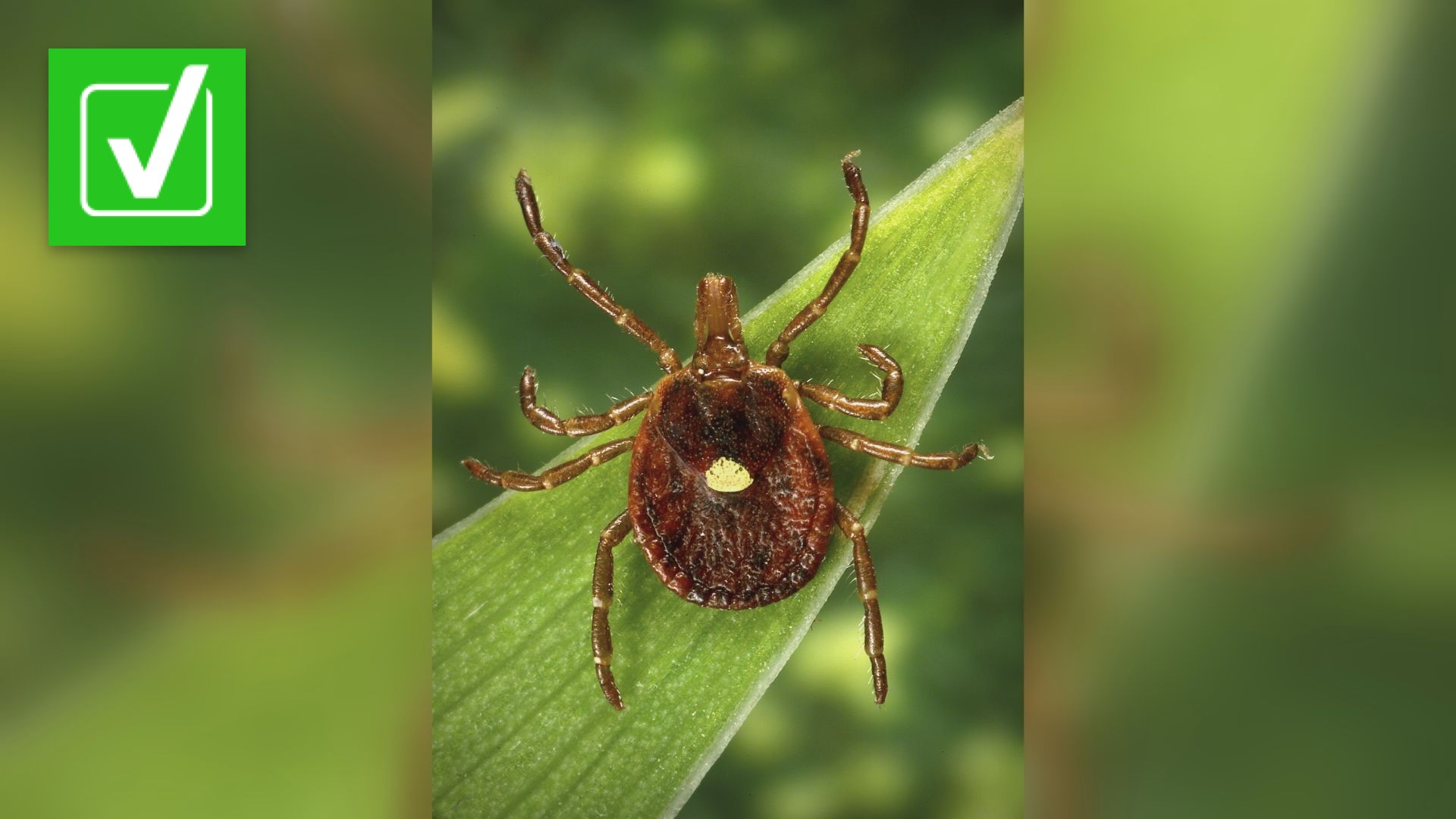WASHINGTON — First, there were murder hornets, then cicadas and Joro spiders and now the internet is clamoring over the Lone Star Tick.
Lots of people are talking about how getting bit by one of these ticks can cause you to develop a red meat allergy.
That's right—no more bacon, hamburgers or steak.
So what's real and what's not? We verified.
THE QUESTION:
Is it true that a bite from the Lone Star Tick can make someone allergic to red meat?
THE SOURCES:
- John Lill- professor of biology at The George Washington University
- Dr. Scott Commins- associate professor of medicine and pediatrics at the University of North Carolina School of Medicine
- Micheal Raupp- professor at the University of Maryland
- Centers for Disease Control and Prevention- "Tick ID," "Alpha-gal Syndrome"
THE ANSWER:
WHAT WE FOUND:
The Lone Star Ticks are prevalent in the eastern and southern United States, according to the CDC.
They can be identified by the white spot on their backs, according to Michael Raupp, an entomologist and professor at the University of Maryland.
Here's where the strange side effect comes in— the ticks have a sugar molecule in their saliva, and that molecule is also present in the meat of most mammals.
Humans and primates don't have that sugar molecule, so when the tick bites some people, their bodies produce an allergic response to it.
"That carbohydrate molecule Alpha-gal gets introduced into our bodies, our bodies do what they always do, and mount an antibody attack on that foreign protein," Raupp said.
After that happens, anytime a person eats Alpha-gal in the form of red meats, things like beef or pork, that person could become sick. It's called Alpha-gal Syndrome.
Dr. Scott Commins, an allergist and Alpha-gal Syndrome expert at the University of North Carolina says it can present in two ways.
There's the more subtle presentation.
"They have terrible abdominal cramping and pain and diarrhea, maybe nausea and vomiting, and it's all actually due to the same allergy," Commins said.
Then there's the more "traditional" presentation.
"You eat beef or barbecue in the evening, and four to six hours later you start itching and get some hives, then maybe some chest tightness, some gastrointestinal symptoms, and ultimately, those folks are diagnosed by a blood test," Commins said.
This second description, John Lill, a biology professor at The George Washington University, knows first-hand.
The bug expert was bit by a Lone Star Tick around the age of 25 and has been allergic to red meat for the past 25 years.
“I just developed hives all over my body that were super strong," Lill said recalling a barbeque. "I got violently ill and got sick from that hamburger.”
But having AGS isn't as simple as abstaining from meat.
“It's more than just a food allergy— you can't get a heart valve from a pig or a cow safely, because you're allergic to the Alpha-gal that's present on those implants," Commins said. "You can't have certain medications, many people can't have gelatin, so they can't have capsules or marshmallows.”
Many with the allergy also can't eat dairy, he said.
Alpha-gal isn't present in birds or fish, according to Commins, which means those who have an allergy can still eat things like chicken, turkey and salmon.
In terms of scope, one paper, which was co-authored by Dr. Commins, estimates there were 34,000 people who tested positive for Alpha-gal between 2010 and 2018.
The allergist says he has seen close to 3,500 Alpha-gal allergy patients in his 12-year career.
So we can Verify, yes, if a Lone Star Tick bites you, you could become allergic to red meat. The good news is, our experts say that won't happen to everyone.
"I can tell you that I've been bitten several times by this tick," Raupp said. "I don't have Alpha-gal."

